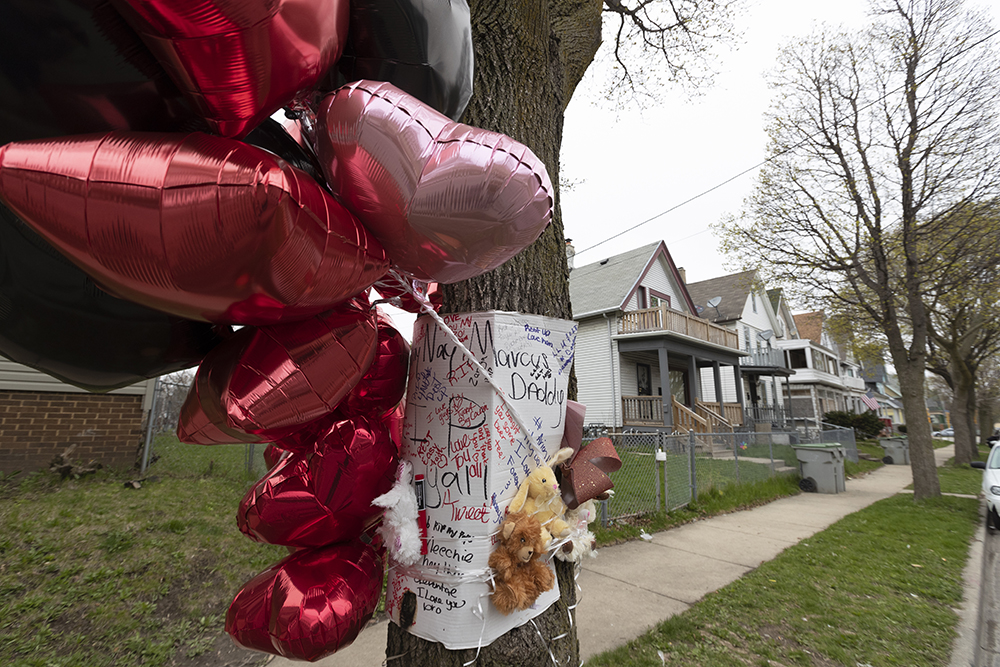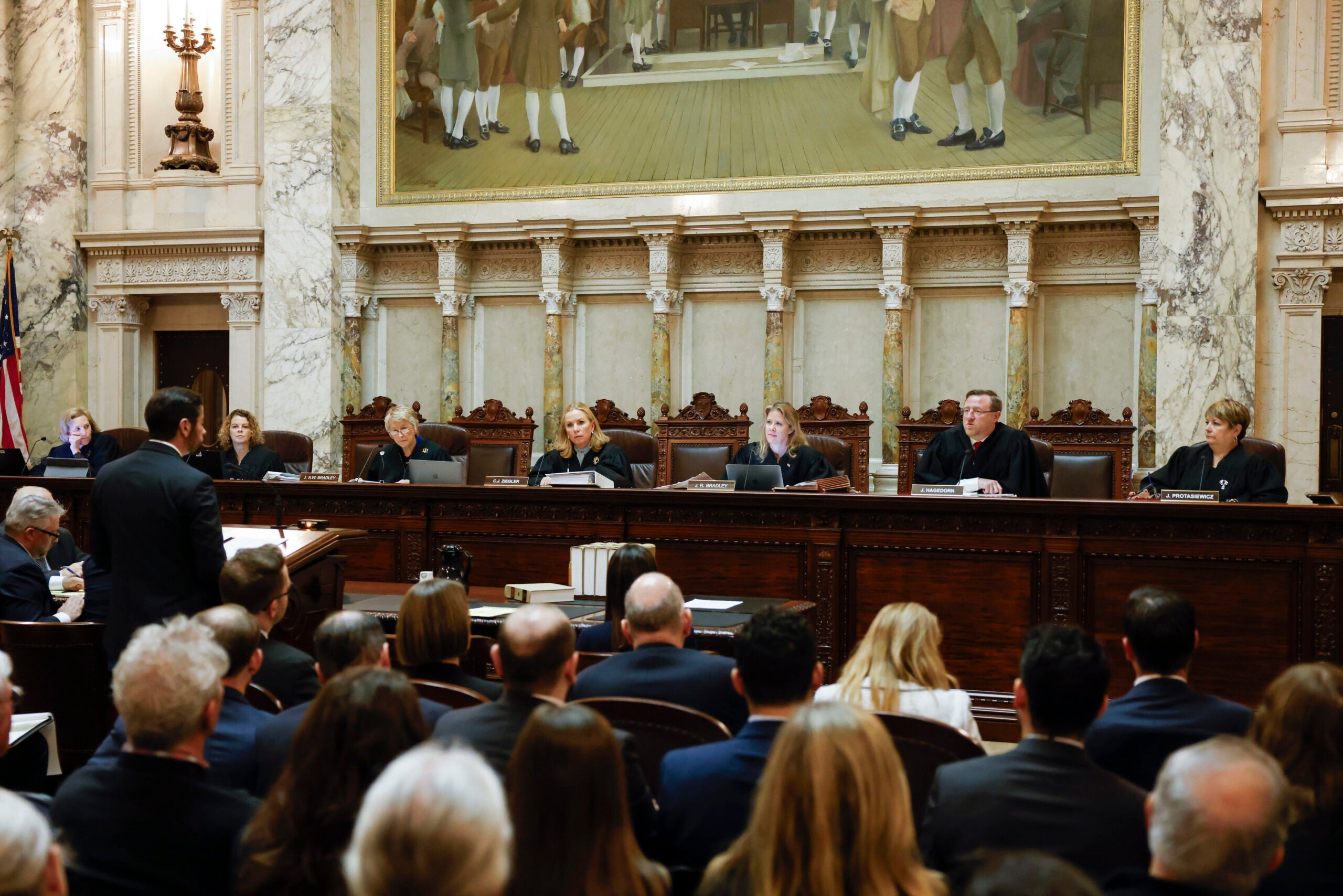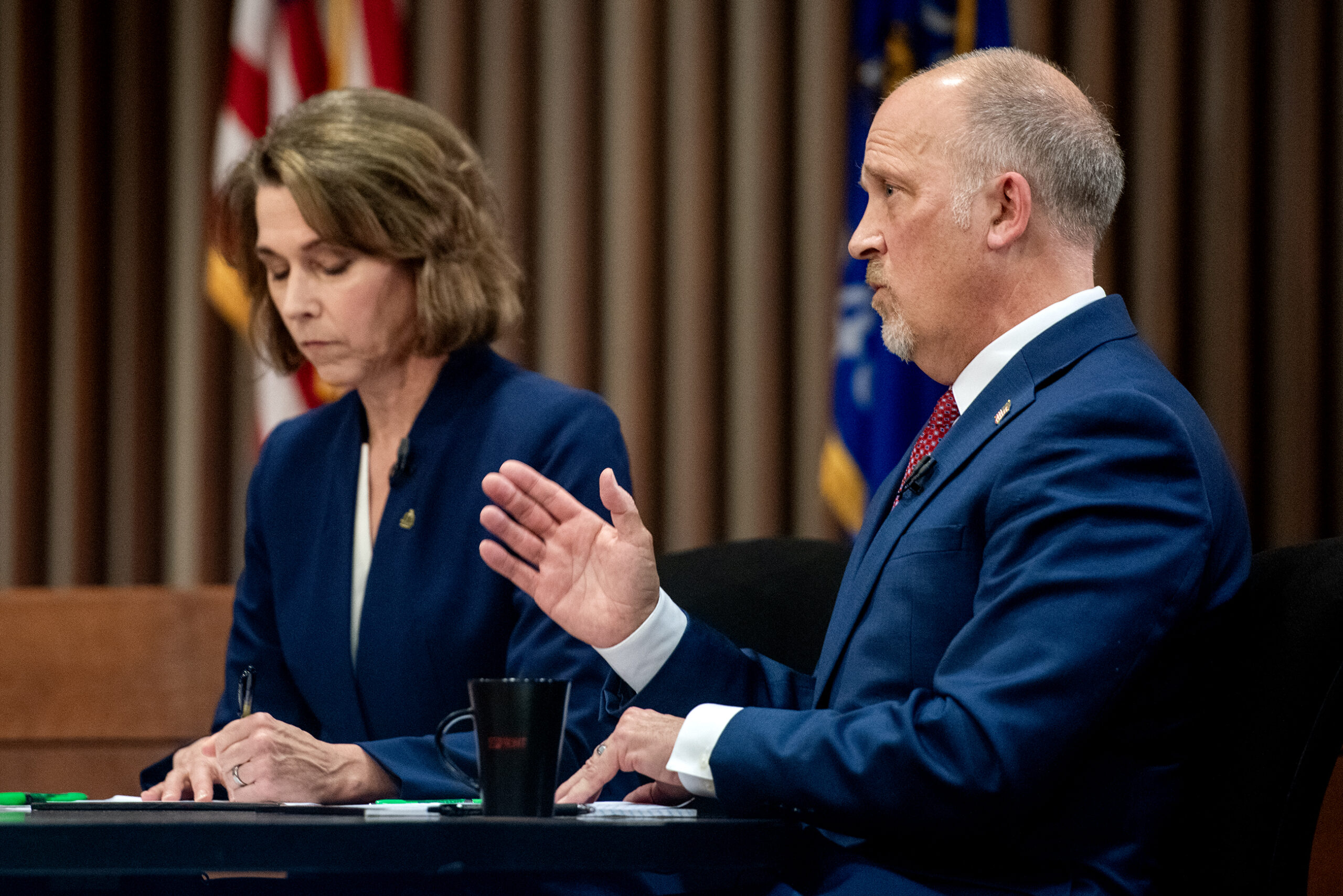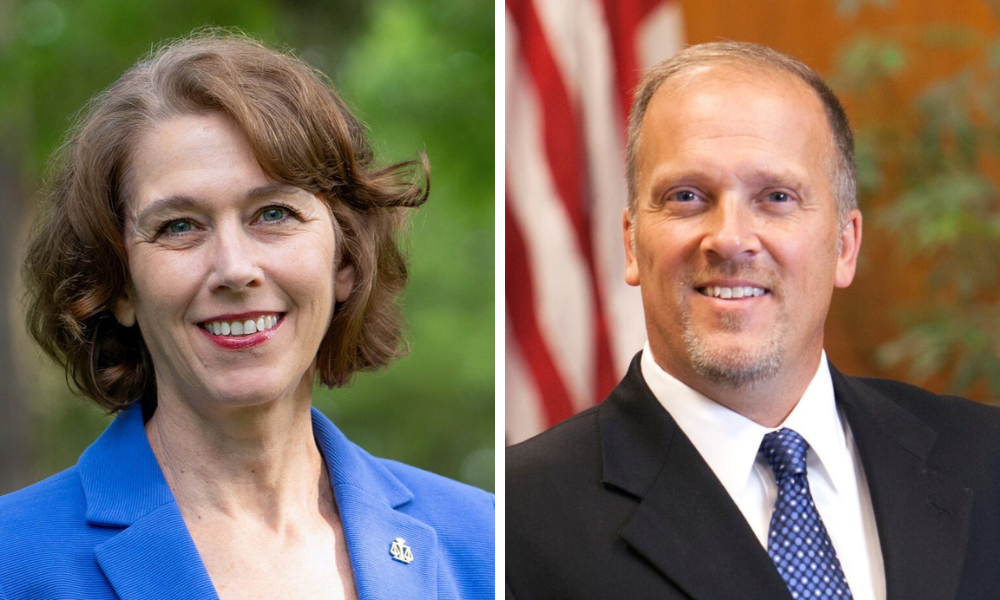Leaders with End Domestic Abuse Wisconsin closely followed the U.S. Supreme Court’s recent ruling that kept in place a federal law that banned people with domestic violence restraining orders filed against them from owning guns.
“It’s a big deal,” Executive Director Monique Minkens said of the high court’s 8-1 decision.
Minkens and Jenna Gormal, the Wisconsin group’s public policy director, recently joined WPR’s “Wisconsin Today” to share their reactions to the decision and concerns about the current state of Wisconsin’s laws about domestic violence.
Stay informed on the latest news
Sign up for WPR’s email newsletter.
Gormal said she knew that the state’s laws on gun access for recipients of domestic violence restraining orders would have remained intact even if the court’s decision last week had gone the other way.
Still, Gormal worried how others in the future might contest her state’s laws on gun access for those accused of domestic violence.
“We’re lucky in Wisconsin that we have those protections,” she said. “But anything that happens federally … opens the door to further legal challenges.”
Gormal and Minkens advocated for closing what they called loopholes in state statute to protect potential victims.
Minkens said some of the state’s laws about domestic violence should expand to be more inclusive of who is considered a victim or survivor. She said the laws protect people if they are a spouse, if they have lived in a home with the offender for a while or if they have a child together. She said some other relationships, such as teen dating relationships, “slip through the cracks.”
“We still have this loophole that needs to be closed,” she said.
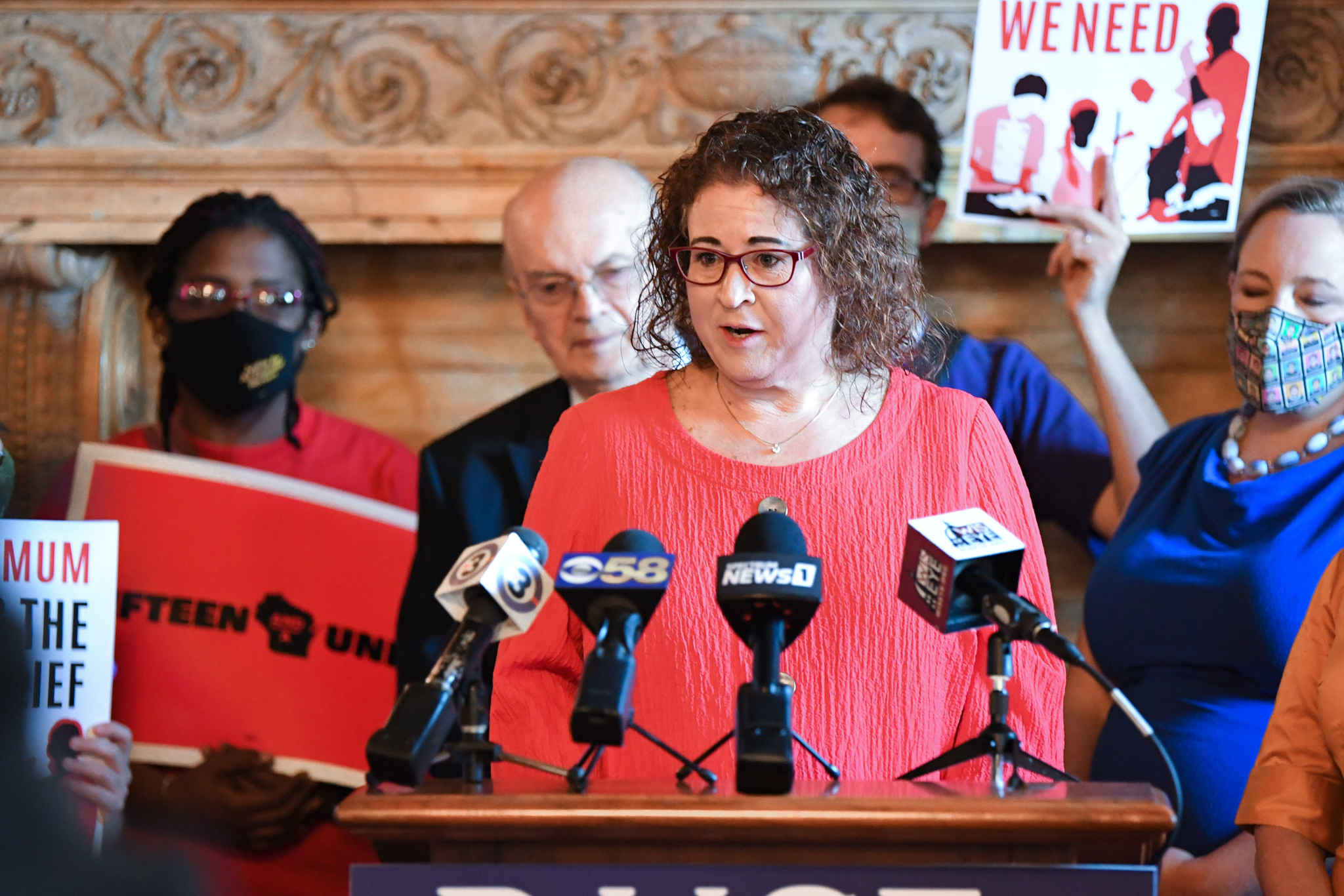
In November, Attorney General Josh Kaul and some Democratic legislators pushed for a bill that would have brought Wisconsin law closer in accordance with a federal law that prohibits someone from possessing a firearm if they have been convicted of a misdemeanor crime of domestic violence.
In Wisconsin, there is technically no “misdemeanor crime of domestic violence,” so a person who commits an act of domestic violence is often charged under Wisconsin’s disorderly conduct laws. In 2022, the state Supreme Court unanimously decided that misdemeanor disorderly conduct offenses in Wisconsin aren’t covered by that federal law, even when threats of violence are included.
“Unfortunately, that did not pass last session. But we do plan to introduce that again next session,” Gormal said of the Wisconsin bill. “But that is a dangerous loophole that is currently in effect in the state.”
For help: The National Domestic Violence Hotline is 800-799-7233. A map of available Wisconsin resources can be seen here.
Wisconsin Public Radio, © Copyright 2025, Board of Regents of the University of Wisconsin System and Wisconsin Educational Communications Board.

